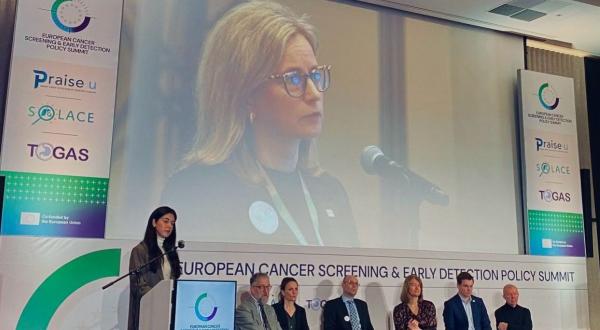RSU Research Week Innovation Section Focuses on Digitalisation
Five international conferences, multiple plenary sessions, parallel sessions, poster sessions, master classes and even a hackathon – the week-long virtual Rīga Stradiņš University (RSU) Research Week 2021 will kick off on 22 March. All events are available to researchers and other interested persons, like industry, or government body representatives.
The Innovation in Medicine and Healthcare – from Research to Practice section is one event that might be of particular interest not only to healthcare specialists, but also to entrepreneurs and representatives from the governmental and non-governmental sectors. This section will be held online on 25-26 March and cover topics such as artificial intelligence, digitalisation, telemedicine, virtual reality, IT, medical technologies and personalised medicine.
Digitalisation in medicine and health care is a process that leads to higher efficiency and helps improve the availability of services and resource optimisation. Digitalisation also helps develop tools in the field of personalised medicine. It is essential to enhance digital competences more broadly so that these effective solutions become more widely implemented.
In his opening speech, Kristaps Krafte, the Founder and Chief Executive of the start-up Vigo Health, will highlight the importance of extensive cooperation. ‘When I started this healthcare business, it was clear to me that we would look for opportunities to cooperate with other companies, research centres and healthcare authorities. Cooperation is the foundation of successful innovation. In developing the Vigo digital treatment, which makes rehabilitation more accessible to people who have suffered from strokes, we partnered with RSU, the Vaivari National Health Centre, five hospitals and Latvian Mobile Telephon.
In cooperation with RSU we will be launching a randomised controlled trial as the next phase of the clinical trial this year. Latvia’s potential in the field of healthcare is huge, and thanks to digitalisation, this potential has no borders.’
Additionally, experts will be discussing the possibilities for data collection and analysis as part of the innovation section. Baiba Ziemele, a representative of Latvijas Reto slimību alianse (the Latvian Alliance for Rare Diseases), points to the potential of data collection: ‘It is time to use data to our benefit – from counting steps to international genetics studies to help find the most appropriate treatments for everyone.
Researchers need to create solutions that alleviate patients’ lives and encourage innovative solutions for treatment and care.’
Prof. Maija Radziņa, Head of the RSU Radiology Research Laboratory, emphasises that discussions in the innovation section will utilise a cross-disciplinary approach: ‘Every doctor would like to be fully informed about each of their patients, to access images, analysis results, or pervious data in one place, safely, quickly and conveniently. Are we prepared to entrust healthcare data management and decisions in radiology to artificial intelligence solutions, and if so, then to what extent? We are looking forward to seeing both experienced and new medical practitioners participate in our expert discussions.’
Related news
 RSU Professor Maija Radziņa represents Latvia at EU cancer screening summitResearch, International Cooperation
RSU Professor Maija Radziņa represents Latvia at EU cancer screening summitResearch, International Cooperation


